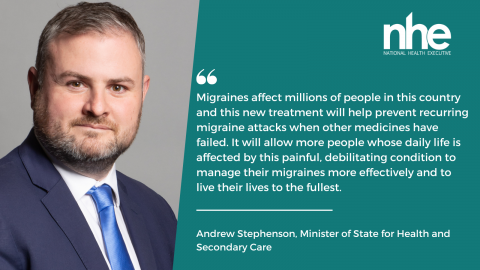Up to 170,000 NHS patients in England are set to benefit from a new treatment option for migraines, thanks to new guidance from the National Institute for Health and Care Excellence (NICE).
The drug atogepant, which is marketed as Aquipta by AbbVie, has been recommended for preventing both chronic and episodic migraines.
Somebody has to experience at least 15 headache days a month, with eight of those having features of migraines to suffer from chronic migraine, while episodic migraine is characterised as fewer than 15 headache days a month.
The oral treatment has been approved for adults who have tried unsuccessfully with at least three preventive treatments, and suffer from at least four migraine days a month.

NICE’s director of medicines evaluation, Helen Knight, highlighted the fact that atogepant is taken as a tablet and not via an injection, which could help more patients access the treatment given some people have allergies or phobias.
She said: “Today’s final draft guidance demonstrates our commitment to focusing on what matters most and getting the best care to people while ensuring value for the taxpayer.”
The treatment works by blocking the calcitonin gene-related peptide (CGRP) receptor – CGRP is a protein found in the nerves of the head and neck that can cause blood vessels to dilate and thus inflammation and pain.
All the latest innovations from the pharmaceutical industry will be detailed during National Health Executive’s ‘Life Sciences’ online conference later this year, where expert guests will discuss:
- Clinical trials
- Pathology
- Genomics
- Digital technologies
- Patient safety
Migraines are thought to impact around 4.5 million people in England. The Migraine Trust has previously estimated that migraines cost the NHS £1bn a year.
Image credit: iStock



















